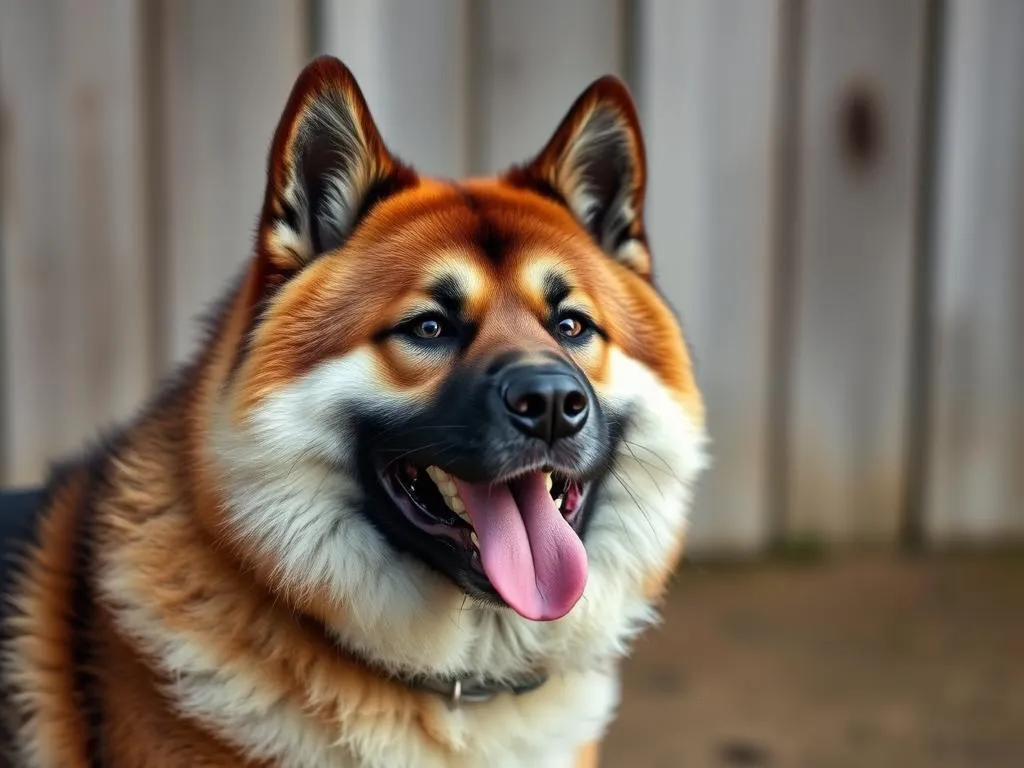
Akitas are a majestic and powerful breed, often recognized for their loyalty and protective nature. However, potential owners frequently wonder, are Akitas good with other dogs? Understanding this breed’s behavior towards other dogs is crucial for anyone considering adding an Akita to their home. This article delves into the characteristics of the Akita breed, their socialization skills, and practical strategies for introducing them to other dogs.
Understanding the Akita Breed
History of the Akita
The Akita breed originates from Japan, where it has a storied history. Initially bred for hunting large game such as bear and boar, Akitas were revered for their strength, endurance, and loyalty. In Japanese culture, they symbolize good health, happiness, and long life. The breed was later recognized as a national treasure, and today, Akitas are cherished family companions, known for their protective instincts and strong bonds with their human families.
Physical Characteristics
Akitas are large and powerful dogs. Males typically weigh between 100 to 130 pounds, while females range from 70 to 100 pounds. They possess a thick double coat, which can be short or long, and comes in various colors, including white, brindle, and pinto. Akitas are generally healthy but can be prone to certain health issues such as hip dysplasia, autoimmune disorders, and certain cancers. Regular veterinary check-ups and a good diet can help mitigate these risks.
Temperament and Personality Traits
Akitas are known for their dignified and aloof demeanor. They are intelligent and highly trainable, which can be a double-edged sword. While they can learn commands and tricks quickly, they also have an independent streak. This personality trait can lead them to be stubborn or resistant if they do not see the value in a command. Akitas are also known for being loyal to their families and can be protective, making them excellent watchdogs.
Socialization Skills of Akitas
Importance of Early Socialization
Early socialization is critical for Akitas. Socialization involves exposing a dog to various environments, people, and other animals to help them grow into well-rounded adults. The recommended age for socialization is between 3 and 14 weeks, which is when puppies are most receptive to new experiences.
Failing to socialize an Akita can lead to behavioral issues, particularly around other dogs. A well-socialized Akita is more likely to be calm and friendly during interactions with other pets.
Socialization Techniques
To effectively socialize an Akita, owners should use various techniques:
- Exposure to Different Environments: Taking your Akita to parks, pet stores, and busy streets can help them become accustomed to different sounds, smells, and sights.
- Interaction with Other Dogs: Arranging playdates with well-mannered dogs can provide Akitas with positive experiences that foster good behavior.
- Positive Reinforcement Training Methods: Using treats and praise to reward good behavior can help reinforce positive interactions with other dogs. This method builds trust and encourages Akitas to view socialization as a rewarding experience.
Akitas and Interactions with Other Dogs
General Behavior Towards Other Dogs
When it comes to interactions with other dogs, Akitas can exhibit a range of behaviors. Some Akitas may be friendly and playful, while others may show signs of aggression or dominance. This variability largely depends on the individual dog’s temperament, socialization experiences, and training.
Akitas tend to engage in play that can be rougher than what other dogs are accustomed to. They may also display a dominant behavior during play, which can be misinterpreted by other dogs as aggression. Hence, monitoring their interactions is essential.
Factors Influencing Akita Behavior
Several factors can influence how an Akita behaves around other dogs:
- Individual Personality Variations: Just like people, dogs have unique personalities. Some Akitas might have a higher prey drive or be more territorial, affecting their interactions with other dogs.
- Impact of Age and Training: Younger Akitas may not know how to interact properly with other dogs, while older, well-trained Akitas may be more adept at socialization. Consistent training is vital.
- Role of Breed Characteristics: As a breed, Akitas are known to be more solitary than some other breeds. Their natural instinct may lead them to be less social with other dogs, particularly if not properly socialized.
Strategies for Introducing Akitas to Other Dogs
Preparing for Introduction
Before introducing your Akita to another dog, it’s crucial to assess the temperament of both dogs. If either dog has a history of aggression or anxiety, it may be best to consult with a professional trainer. Choosing the right environment for the introduction is also key. A neutral location, such as a park, can help minimize territorial behavior.
Step-by-Step Introduction Process
- Initial Meetings: Start with on-leash introductions, allowing the dogs to see and sniff each other while maintaining control.
- Monitoring Body Language: Watch for signs of stress or aggression in both dogs. Tail position, ear orientation, and vocalizations can provide insights into their comfort levels.
- Gradual Increase of Interaction Time: If the initial introduction goes well, gradually increase the time the dogs spend together while keeping interactions supervised.
Tips for Ongoing Interactions
- Regular Playdates: Consistent socialization with other dogs helps reinforce positive behavior.
- Controlled Environments: If possible, arrange for interactions in controlled environments, such as dog parks or training classes, to ensure safety.
- Supervision and Intervention Strategies: Always supervise interactions and be ready to intervene if one dog shows signs of discomfort or aggression. Early intervention can prevent escalation.
Case Studies and Real-Life Experiences
Success Stories
Many Akita owners have successfully integrated their dogs into multi-pet households. For instance, one owner shared how their Akita formed a close bond with a smaller dog after patiently introducing them through gradual interactions. They noted that their Akita learned to play gently and respect the smaller dog’s space, showcasing the importance of proper training and socialization.
Challenges Faced
Conversely, some owners report challenges when their Akitas display aggressive behavior towards other dogs. Common issues include barking, lunging, or attempting to assert dominance. To address these behaviors, owners often seek professional training or behavior modification techniques. Developing a strong foundation in obedience training can significantly reduce these negative tendencies.
Expert Opinions
Insights from Dog Trainers
Professional dog trainers emphasize the importance of consistent training and early socialization for Akitas. They often recommend starting with basic obedience commands and gradually introducing the dog to other dogs in controlled environments. A common mistake is assuming that Akitas will instinctively get along with other dogs due to their loyalty and protectiveness.
Veterinarian Perspectives
Veterinarians also note that health considerations can impact an Akita’s behavior. Pain or discomfort from undiagnosed health issues can lead to aggression or anxiety. Regular check-ups are essential for monitoring any potential health issues that could influence behavior, as well as ensuring that the dog is in optimal health for socialization.
Conclusion
In summary, are Akitas good with other dogs? The answer is nuanced. With proper training, early socialization, and appropriate introductions, Akitas can develop positive relationships with other dogs. However, their natural instincts and independent nature mean that careful management is often necessary. Responsible ownership and commitment to training are vital for fostering harmonious interactions with other pets.
If you’re considering bringing an Akita into your home, be prepared for the responsibility of socializing and training this intelligent breed. Your efforts will not only enhance the bond you share with your Akita but also ensure a more peaceful coexistence with other dogs.
FAQs
Are Akitas good family dogs?
Yes, Akitas can be excellent family dogs, especially when properly socialized and trained from a young age.
How to train an Akita to get along with other pets?
Training should focus on positive reinforcement, gradual introductions, and consistent socialization to ensure a friendly demeanor towards other pets.
What breeds are compatible with Akitas?
While it varies by individual dog, breeds that are generally more submissive and less territorial tend to get along better with Akitas.
Can Akitas be aggressive towards other dogs?
Yes, Akitas can display aggressive tendencies, especially if not properly socialized. Early exposure to other dogs is crucial.
How to identify signs of stress in Akitas during interactions?
Signs of stress may include excessive barking, growling, raised hackles, or attempts to escape. Monitoring body language is key to understanding their comfort level.









